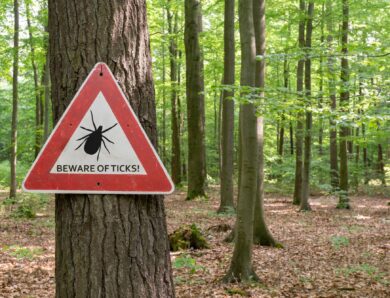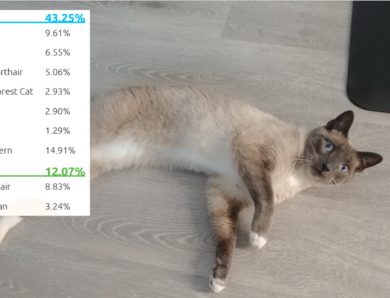
Cat Vaccinations: What Shots Does My Cat Need?
Just like people, cats need regular vaccinations to avoid getting sick from dangerous viruses.
Most cats will require one to four essential shots either once a year or every three years, depending on the brand of vaccine your vet uses. These protect your kitty from the most common feline viruses, most of which are highly-contagious and usually fatal.
Here’s everything you need to know about which cat vaccinations your cat needs, when they should begin, what the risks are, and what to watch out for.
Recommended Cat Vaccinations
Feline Leukemia (FeLV): The feline leukemia vaccine is essential for kittens, but less so for indoor adult cats. Feline leukemia is one of the most common cat diseases, is easily spread and is usually fatal.
FVRCP: Also referred to as the feline distemper shot, an FVRCP injection bundles together the vaccines for feline viral rhinotracheitis, calicivirus and panleukopenia. Feline viral rhinotracheitis and feline calicivirus are common viruses that cause upper respiratory infections in cats. Panleukopenia, aka feline distemper, is highly contagious and usually fatal.
The FVRCP vaccine is the first shot your kitten will get (along with two additional boosters of it). It is also a core vaccine to keep up-to-date with for your adult cats.
Most vets nowadays use the FVRCP vaccine rather than individual vaccines for each virus. If your vet is still doing shots the old-fashion way, ask him to switch to the three-way FVRCP variety. While the shots are essential, the fewer injections needed the better to cut down on the risk for injection-site sarcomas.
Rabies: Rabies is an extremely virulent and deadly disease. It can affect animals and humans alike and pretty much always results in death. The rabies vaccine will protect your cat from getting the disease and being able to pass it on to you and your family. It is often required by law.
Optional Cat Vaccinations
You may also want to give your cat one or more extra shots. These will depend on how often he goes outside or whether you ever board him or take him to a groomer.
Feline Leukemia: Mentioned above because it is a core vaccine for kittens, it is optional for adult cats. Outdoor kitties should definitely get the shot. Sneaky indoor cats that like to bolt through your legs to get outdoors are also go candidates for the feline leukemia shot.
Bordetella: Another option is a Bordetella (or kennel cough) shot. Kennel cough is more often associated with dogs, but cats can get the disease as well. If you regularly board your cat or take him to a busy groomer, you might want to consider the Bordetella vaccine. The vaccine doesn’t prevent the disease, but it does ease the symptoms.
Feline Immunodeficiency (FIV): Every new cat coming into your household should be tested for FIV. It is highly contagious and while cats with FIV can live a normal life, they will be immunocompromised their entire lives. The vaccine is most often recommended for outside cats living in areas with large feral cat populations. If you’re concerned, talk to your vet.
Kitten Vaccination Schedule
Kittens should get their first FVRCP shot between six and 10 weeks of age. A booster should be administered three to four weeks later, (preferably between 11 to 14 weeks old), along with a first feline leukemia shot.
A third FVRCP booster, second FeLV booster, and a rabies shot should be given three to four weeks after that.
Annual shots should begin a year later. Depending on the brand of vaccine your vet uses, your cat may only require a shot every three years.
Shots for Adult Cats
Adult indoor cats need shots as well, particularly the combination FVRCP shot and a rabies shot. Cats that spend a lot of time outdoors should also get a feline leukemia shot, as they are likely to be exposed to other outdoor cats, including ferals, that may carry the disease.
Are Cat Vaccinations Required by Law?
The requirements for cat vaccinations, specifically the rabies shot, varies by state. California doesn’t require rabies shots for cats, for instance. But New Jersey does. Your vet will know what the requirements are. The American Veterinary Medical Association also has a handy-dandy chart of state rabies vaccination requirements.
What about Indoor Cats?
If you have an indoor cat you may be questioning the need for the rabies shot. We get it, a cat that is always indoors and doesn’t interact with “foreign” animals has a zero chance at getting rabies.
But ask yourself, does your cat have a zero chance of this? All six of our cats are indoor cats, but one has been known to bolt outside when we weren’t looking. We once found him hanging out in the backyard with one of the local feral cats. Thankfully, our cat has had all his shots, so all we had to worry about was the possibility of fleas!
Is skipping one shot a year worth the risk to your fur baby and your family?
Indoor cats that get out are also at risk for feline leukemia and distemper if they mix with other cats. The best way to protect your cats is to keep them vaccinated.
Side Effects Associated with Cat Vaccinations
If you’ve ever had a shot and found yourself feeling sleepy a few hours later or woke up with an achy arm, you know what your cat might feel after his shots. Other common side effects are temporary loss of appetite and lameness.
On rare occasions, your cat might get a fever, vomit after eating, have diarrhea or experience an allergic reaction like hives. Your vet will tell you what warning signs to watch out for.
Even rarer are long-term side effects, including injection site tumors and the development of immunodeficiency diseases. To ensure an injection site tumor will not put your cat’s life at risk, make sure your vet is giving your cat all his shots in a front or rear leg, not his rump. While this won’t prevent sarcoma from developing, the leg can be amputated before the cancer does any damage.
Cat Vaccine Exemptions
There are a handful of cases for which not vaccinating your cat is recommended. Always discuss skipping a round of vaccinations with your vet before making a decision.
Generally speaking, vets won’t vaccinate cats with serious, chronic diseases or those that are immunocompromised. Cats receiving steroid therapy are also probably better off without a vaccine.
Kittens under six weeks should not be vaccinated; assuming they’re still nursing the vaccine won’t even be effective as the mom’s antibodies will likely destroy the vaccine.
Pregnant cats can usually skip a shot as well. Once she’s given birth and her kittens have been weaned, feel free to catch her up with whatever she missed.
1 Comment
Comments are closed.






I love all the articles; they are so informative.